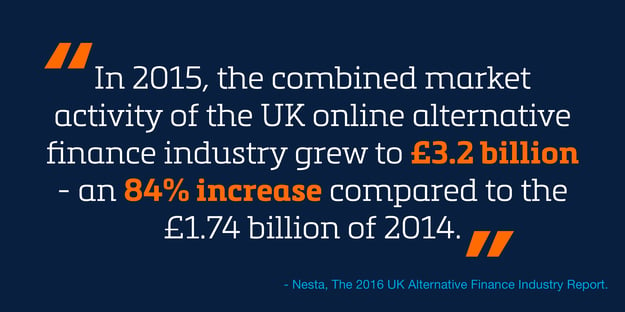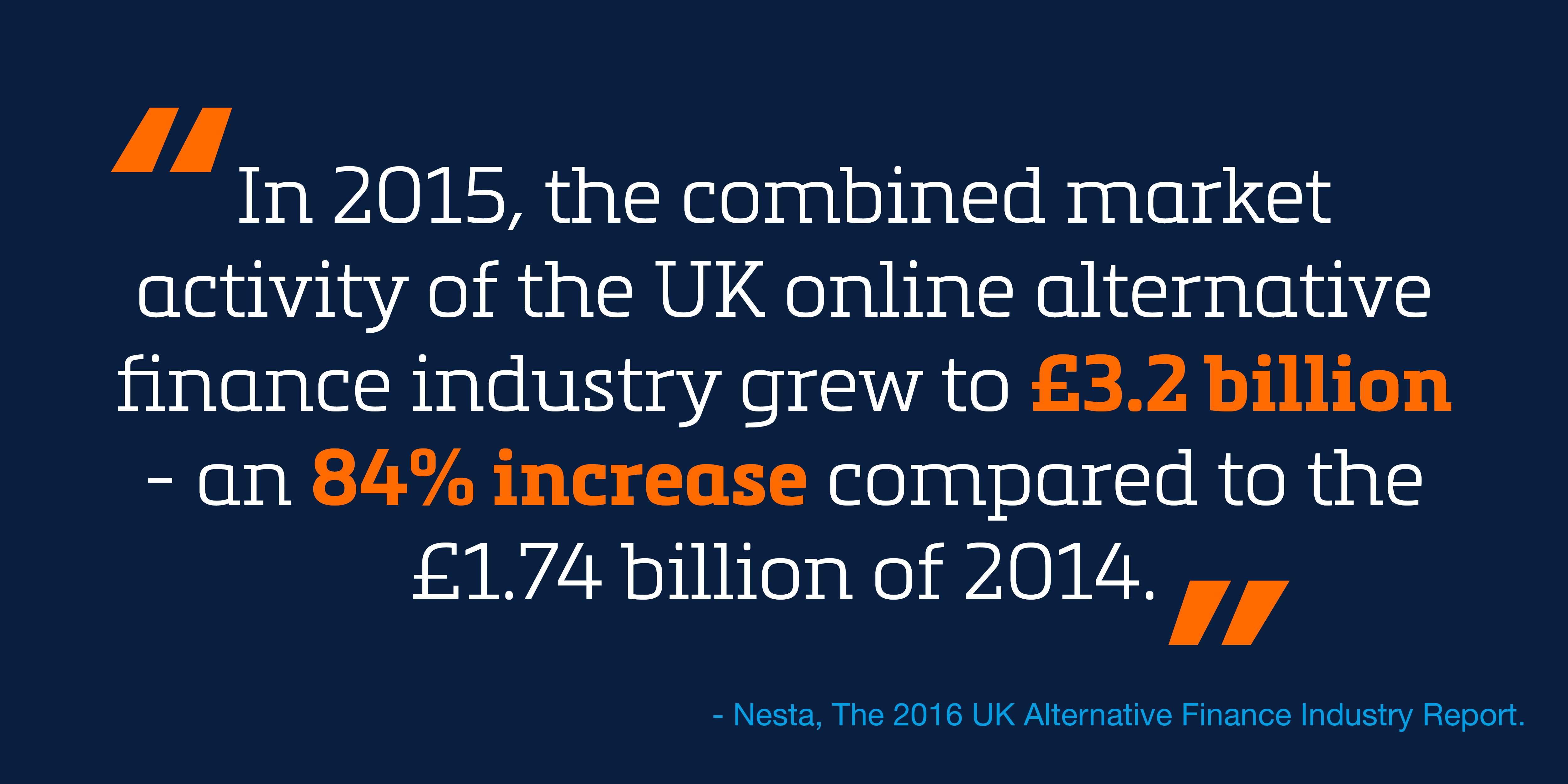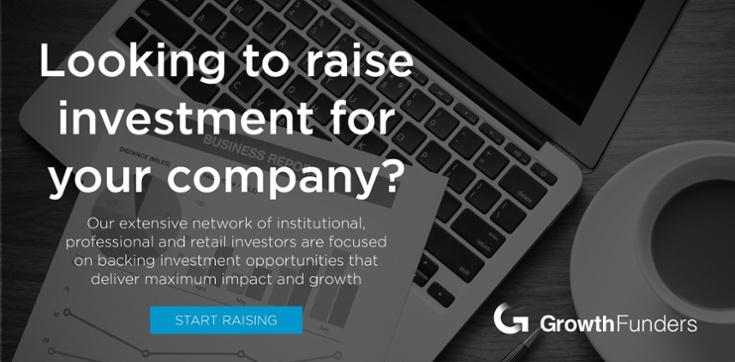Has the alternative finance bubble burst?
It’s a question that’s been asked a lot: How long can we really use the term “alternative” when referring to non-bank financing for projects and businesses?
Judging by the ever-increasing number and popularity of online crowdfunding and peer-to-peer lending platforms, it would seem that this form of raising finance is very much now the mainstream option in the UK for entrepreneurs of all levels.

But the growth of the alternative finance market is slowing, according to a new report into the sector. Yesterday saw the publication of Pushing Boundaries, the 2015 report on the UK’s alternative finance market from the Cambridge Centre for Alternative Finance at the University of Cambridge and leading innovation charity Nesta.
The latest in an annual series, Pushing Boundaries found that the market grew by 84% between 2014-15, compared to the 2013-14 rate of 161%.
However, whilst the rate of growth may have slowed by almost half, the actual growth of the sector in that same time period is still extremely impressive.
The market has grown from £666m in 2013 to £1.74bn in 2014 and now to £3.2bn in 2015, with more than one million people now having lent, invested, or donated money through online alternative finance platforms.
In fact, the figures show that equity crowdfunding is becoming increasingly influential and now accounts for 15.6% of all UK seed and venture stage equity investment, whereas in 2011, it accounted for just 0.3%.
Another key point picked up by Pushing Boundaries is that almost a third of loans in P2P consumer lending were funded by institutional investors.
Surely this defeats the original purpose of AltFi, which was to allow projects and business owners to bypass banks when raising capital.
Wrong. Anchoring deals through syndication is essential to the growth, sustainability, and overall success of the sector.
Co-investment between retail, professional, and institutional investors is possible with many VCs already getting involved in the alternative finance market.
Where does the market go from here?
There are two things the AltFi market could do to stimulate growth in the sector over the coming year:
- Increase Liquidity
The creation of a secondary market would increase the liquidity of shares bought via online equity crowdfunding platforms by enabling investors to sell on unwanted shares. Currently, online retail, professional, and institutional investors in technology startups or early stage businesses, for example, are likely to have to hold their position in any one investment for an average of 7 years. A secondary market would allow these early stage investors to trade shares far before a liquidity event like a public offering (IPO) takes place.
-
Growth and Impact
Finance first impact investing sits in the space between traditional and philanthropic investing. Whilst the focus is on targeting a financial return, investors who invest in projects and businesses which display both high growth and high impact potential know that their investments will also go towards generating positive social and environmental benefits.
Growth and impact investment opportunities can be found across many sectors, such as clean energy, tech, and real estate. Here are a couple of examples: Hive.hr - a piece of cloud-based software which measures employee engagement, thereby raising health and well-being in the workplace. The Gym Group, the majority of whose sites are located in underserved markets with one-third of users being first-time health and fitness club users. The Gym currently provides employment to around 200 full-time employees and contracts with more than 550 self-employed personal trainers.
Interestingly, Pushing Boundaries found that the most popular sector within the industry for equity crowdfunding is now real estate with £87m raised for 174 fundraisers/development projects.
Growth rates increased rapidly over the first three quarters of the year (£13.09m in Q1, £23.16m in Q2, and £35.7m in Q3) which indicates strong potential for real estate to become a substantial segment within the UK AltFi industry.
This is a fantastic news for those online investors who want to move into investing for both growth and impact as it shows that the sector is already gaining popularity for those targeting positive benefits and better risk-adjusted returns.
%20(3)%20(2).jpg)







